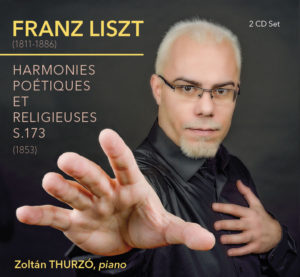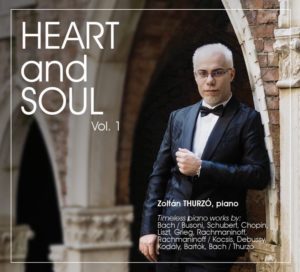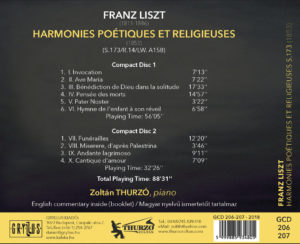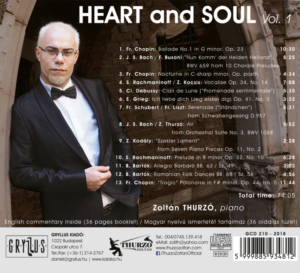About Karl Ditters von Dittersdorf’s work in Oradea
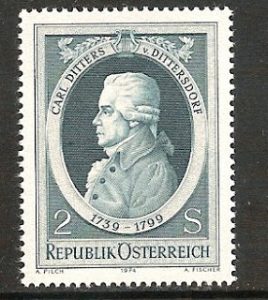 Bishop Ádám Patachich was absolutely fascinated by the young violinist’s virtuosity and he immediately entrusted the leadership of his orchestra, hence the task of increasing the number of musicians, with Viennese artists from Prague. Dittersdorf was able to find exceptional musicians and when he returned to Oradea on 1st of April 1764, he was accompanied by well-known artists. A few days later, the orchestra conducted by Dittersdorf presented itself to the public in the Episcopal court with great success. Since then, concerts were held regularly, every Sunday and Tuesday.
Bishop Ádám Patachich was absolutely fascinated by the young violinist’s virtuosity and he immediately entrusted the leadership of his orchestra, hence the task of increasing the number of musicians, with Viennese artists from Prague. Dittersdorf was able to find exceptional musicians and when he returned to Oradea on 1st of April 1764, he was accompanied by well-known artists. A few days later, the orchestra conducted by Dittersdorf presented itself to the public in the Episcopal court with great success. Since then, concerts were held regularly, every Sunday and Tuesday.
The conductor and his orchestra
Although Dittersdorf began his career as a violin player at the royal court orchestra in Vienna, he soon turned towards writing music. His style was following the classical style of Haydn. He was a talented conductor with works defined by wit. He wrote oratorios, church music, cantatas, symphonies, operas and dictated his biography – referring to the years spent in Oradea – to his son, at the end of his life.
He replenished the orchestra, and among the 34 musicians we were able to find the composer of Czech origin: Wenzel Pichl, which in addition to being a concert master for Dittersdorf, wrote the lyrics for his oratorios. The number of the orchestra members was significant given that, back then, no major European orchestra hired more musicians.
The members of the orchestra were rather unusual. Many were liberal disciples, servants at the Bishop’s court. Appreciating the comedian talent of an Italian chef, the conductor selected him for a role in one of his operas. Dittersdorf was able to highlight very easily, the talent and musicality in ordinary people. He proves his ability with a flashback from his native Czech Republic: gathered at an outdoor performance, the peasants have sung together – almost to perfection – some parts of the opera.
Oratorios
The young conductor quickly decided to present not only concerts, but oratorios and operas, as well. His new landlord supported him with everything he needed to enable the fulfilment of the artistic ideas.
The subject of these operas matched the current of the epoch. The oratorio entitled “Isaac”, a result of Metastasio’s tragedy was composed in those times.
One comment of the epoch states: “The decorated hall was filled with distinguished guests, with the owner quite surprised that the orchestra members were dressed in sophisticated costumes. Another surprise was the oratory stage: Ibrahim’s house in the grove. A sophisticated and stylish ensemble, new and beautiful costumes. When the performance was over, the audience was delighted while the composer was dowered with a gift box containing materials. For four years, the audience has longed to see the oratory, and His Excellency asked for a performance during every fasting periods.”
Among all performances, this one was the most successful and encouraged Dittersdorf to put on stage happy and ordinary operas. The dead men’s Empire, Lady Sybilla does not drink wine, et cetera, are such works were.
Cheerful works
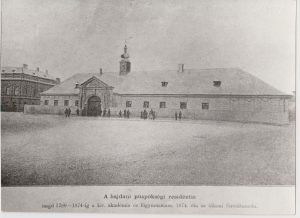 The comic opera “Amore in musica” has an interesting story.
The comic opera “Amore in musica” has an interesting story.
A young conductor meets the daughter of the cashier Markovits and falls for her. But neither the conservative father nor the daughter recognized the artists’ value, so they refused Dittersdorf. The disillusioned musician travels to Vienna in order to forget about this. He comes across the work of Metastasio and composes an opera, which he brings back to Oradea. The show was of such grandeur that the royal court orchestra was filled-in with musicians from the Regiment Neu-Kleinhod led by artist Hohenhole-Schillingfürst.
Starting with that moment on, the classical music is withdrawn and mirth, games, huge festivities with dancing are taking over.
The orchestra is disbanded
The officers wanted more and more cheerful performances. The colonel surprises the Bishop with a folk dance and Dittersdorf mentions that the show has ended with a convoy of wedding guests. With the occasion of the celebration of his name day, Bishop Patachich, on the other hand, has set-up a masquerade party. This was the last party in the episcopal palace.
Patachich’s enemies have sent their reports to the court of Vienna, and right after that Queen Maria Theresa’s Secretary has issued an order to disband the orchestra. In 1769, Dittersdorf returned to Vienna thus ending a decade of great results and successes. The musical life would be locked away for a long time. It was not until the early 19th century that music returned to its place, especially opera. (The Torch pg. 3, August 11th, 1967 – Article written by Sándor Thurzó and Tuduka Oszkár: Concerts in the mid eighteenth century)
 Thurzó Sándor
Thurzó Sándor 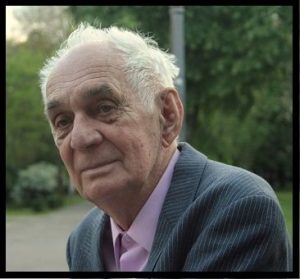 Tuduka Oszkár
Tuduka Oszkár

